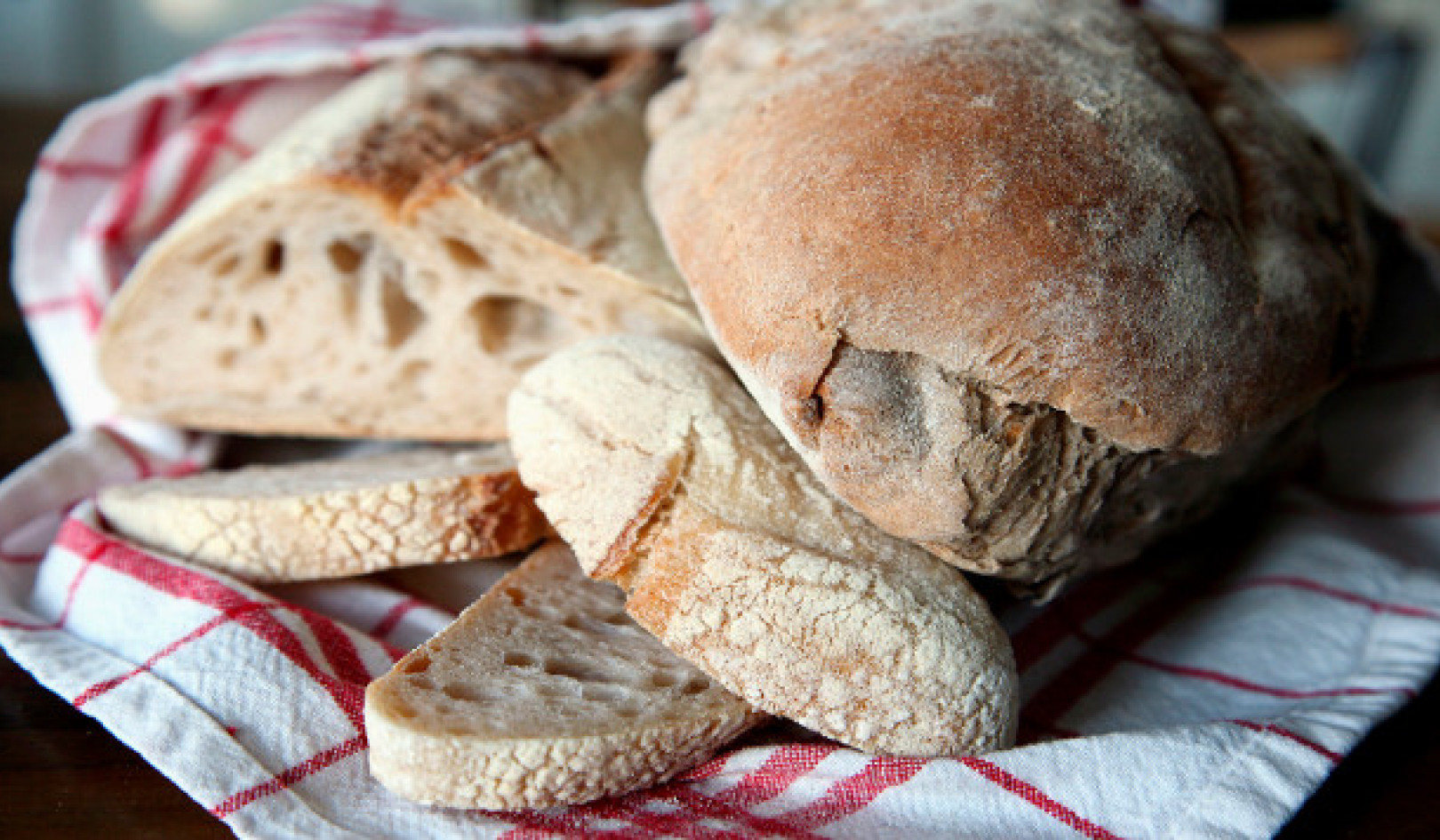Imej oleh Anali Matheus
How you eat has a great impact on health. Food that has been gulped down, or eaten when under stress at work or while engrossed in front of a screen, is often not processed in the way it should be. Our eating habits directly affect the digestion process and the ability of the body to extract the energy it needs from the food.
If those eating habits are good, the whole process is optimized and runs like a well-oiled machine. If they are bad, no matter how beneficial your diet may be, it will get caught up in a slow, sluggish process, which will either add to or cause a series of blockages and imbalances and ultimately ill health.
The following are general guidelines for maintaining good eating habits.
Selamat menjamu selera
Eating should be a pleasurable experience, not only in how it tastes but how it affects your senses. In the Far East, professional and home chefs take great pains to ensure that food is presented in an appealing way, based on the knowledge that digestion begins with your eyes, your nose, your ears, and the texture of the food.
Staying present while you eat is a very important concept, one that is connected to this idea of appreciating your food. At the risk of stating the obvious, in order to really enjoy your food, you have to be aware of the fact that you are eating. It is easy to be distracted by a whole variety of things during meal times, from a television programme to screaming children.
Focusing on the eating experience—the tastes, the colours, the sounds, the smells, the textures, and fellow diners—if only for a short time, can remove automatic eating behaviour from the dinner table and help strengthen your digestive system.
Chew Well
Chewing breaks down the food so that your stomach system has to use less energy in the digestive process. It can also serve to relax your body and ease stress at meal times. The actual chewing action is essential for some types of food to break down. Whole grains, for example, do not reach their optimal nutritional state unless broken down with saliva in the mouth first. Ideally food should be chewed for long enough to put down any eating implements during each mouthful.
Chewing well is especially important for anyone wanting to lose weight, as the more you chew the less you end up eating. According to research in China, those who chew food 40 times consume about 12 percent less calories than those who chew the same food only 15 times.
Observe Regular Eating Habits
The natural cycle of the body usually requires several meals a day at regular intervals (for most people this means three main meals), and this is important to maintain strength in the digestive system.
Regularly missing meal times can cause a range of problems:
Neglect breakfast, and the pancreas system can become impaired.
Neglect lunch, and heat can develop in the stomach system, as it prepares for food but none is delivered.
Neglect dinner, dan juga yin motion of your stomach weakens further, causing a lack of appetite, stomach discomfort, and a dry mouth.
Eating between meals and snacking can cause stagnation and allow damp to accumulate. This is another cause of weight gain, as well as pain and discomfort, wind, and bloating.
Frequent changes of diet, such as when travelling or dieting, can also impair the stomach system.
Regulate the Speed of Eating and Drinking
Japanese research which studied the habit of eating quickly at meal times concluded that people who eat quickly are three times more likely to become overweight than those who eat at a normal speed.
Drinking too much can flood your stomach and should be avoided during meal times so as not to put a strain on the stomach and pancreas systems. Meal times should be accompanied by sipping rather than gulping.
Eat without Distractions
Avoid eating during an emotionally charged situation, an argument, a discussion, or in front of the television or a computer screen, while working or studying, or generally when stressed. All of these activities can injure digestion.
Eat with the Seasons
We live in a time when you can eat any food at any time of the year, regardless of seasonality. While the technology that allows this may be convenient in many areas of your life, the actual availability of foods outside of the season you are in is not so beneficial and can affect your body negatively. This is because your body is attuned to the environment you are in, whether you are aware of it or not.
Regulate the Quantity of Food
Overeating is such a part of everyday life that most of us do not even realize how often it happens. The extreme symptoms of overeating, including indigestion, bloating, and wind, are no longer extreme. In fact, they are now so commonplace that people put up with them on a daily basis without realizing that it is not their body at fault but their eating habits.
Eating too much at once can cause food to stagnate, as there is literally not enough room to pass it all through. This can cause pain and discomfort in your stomach, bad breath, bloating, constipation, and tiredness. This can also cause frontal headaches; nausea; a sense of heaviness, pain, and discomfort in your stomach; and diarrhoea. The ideal time to stop eating is before you feel full. This usually means when your stomach is around two-thirds full.
Be Cautious with Diets
Weight-loss diets that require undereating also can weaken the stomach system by generating heat and damaging the yin motion. Following this type of diet will probably shed fat, but the effect on the stomach and pancreas systems often means that, once you are off the diet, it returns. Diets that require eating a lot of one type of food can also create a stomach or pancreas imbalance and often lead to the accumulation of damp/phlegm.
Be Cautious with the Combination of Foods
Combining too many different types, flavours, and qualities of food in a short space of time can prove too much for a weakened stomach system to process. In this case, it is best to keep meals simple.
Fruit can be very moistening for the body, easy for your stomach to digest, and can help to keep bowel movements regular. If eaten during meal times, however, in combination with other foods, many of these benefits get diluted. To receive the greatest benefits from fruit, it should be eaten alone outside of main meals, if possible.
Makan Diet Seimbang
Studies show that many of the features of a traditional Mediterranean diet contribute substantially to a long life. These include moderate consumption of alcohol, low consumption of meat and meat products, and high consumption of vegetables, fruits and nuts, olive oil, and legumes.
The Mediterranean diet promotes dietary habits that have much in common with those considered beneficial for strengthening the stomach and pancreas systems in Chinese medicine. If the two main digestive systems are processing food efficiently, the whole body will benefit.
Even as far back as the time of the Huangdi neijing text, it was clear on the importance of a balanced diet in allowing your body to thrive. A Chinese medicine–based diet is based on the core principles that it recommends:
Grains to provide nourishment.
Fruits to provide support.
Livestock to provide enrichment.
Vegetables to provide filling.
A diet of this type would “serve to supplement the essence, and to enrich the qi”.
Within these principles of balance, an ideal diet in Chinese medicine is one that includes all of the five flavours (Bitter, Sweet, Pungent, Salty, and Sour). We are all, however, individuals, with different bodies, impairments, preoccupations, and lives, so the exact combination of flavours and temperatures is going to vary from person to person. What may be healthy for one person can make another sick. People with a General Weakness, for instance, can easily feel bloated with dairy produce, but those with Yin Weakness can thrive from its moisturizing effect.
For most people, a balanced diet based on the original principles of Chinese medicine may consist of the following:
Up to 40 percent: Whole grains, such as rice, millet, barley, wheat, oats, corn, rye, quinoa, and amaranth.
Up to 30 percent: Fresh seasonal fruits and vegetables.
20 Percent: Legumes, seeds, or nuts, including beans, lentils, sunflower seeds, almonds, and walnuts.
10 Percent or less: Animal proteins, including dairy foods, meat, fish, poultry, and eggs.
As much food as possible should be of the highest quality and organically grown, as commercial animal products may contain growth hormones, antibiotics, and steroids, none of which we want to enter our bodies with any great frequency. This is the base of a balanced diet and should be adjusted according to individual needs.
Vegetarian
As animal products should ideally be no more than 10 percent of a normal healthy diet, vegetarians should not be overly concerned that they lack the nutritional benefits of meat. Legumes, grains, and nuts can more than compensate when eaten regularly. It is important, however, to avoid relying on concentrated foods like nuts and seeds and to focus more on eating grains.
A common problem is that because meat generally has a warming quality, without it, there can sometimes be a lack of balance. Many vegetarians eat a lot of cold-natured, raw foods like salads, which can weaken overall digestion, and certainly the yang motion. This can be redressed with the addition of warming foods, such as ginger, cinnamon, and other spices.
It is also common for vegetarians to develop a weakness in their blood circulation, not because they are not eating meat but because of the combinations and the quality of the food that they do eat.
Alahan makanan
Some people suffer reactions to certain types of foods, such as nuts. If this is the case with you, please listen to your body rather than strictly following a diet or list of foods. If you have an “allergic” reaction after eating what should be beneficial foods, then those foods are probably not beneficial for you, and you should find alternatives. Remember, common sense is the key. Your body has a wisdom of its own.
Hak Cipta 2023. Hak Cipta Terpelihara.
Disesuaikan dengan kebenaran Findhorn Press,
sebuah jejak Tradisi Dalaman Intl.
Source:
TEMPAHAN: Penyembuhan Diri dengan Perubatan Cina
Penyembuhan Diri dengan Perubatan Cina: Panduan Rumah untuk Merawat Penyakit Biasa
(Edisi Baru Buku Perubatan Oriental)
oleh Clive Witham.
Dalam panduan terperinci dan mudah diikuti ini, ahli akupunktur berlesen dan penganjur kesihatan Clive Witham membincangkan bagaimana dan mengapa penyakit dalam badan berlaku dan perkara yang boleh kita lakukan untuk menjaga diri kita kembali sihat. Dengan ilustrasi yang jelas dan arahan langkah demi langkah, beliau berkongsi rawatan penjagaan diri yang berkesan dan terbukti untuk beberapa gangguan kesihatan biasa, daripada selsema dan tekanan darah tinggi kepada sakit belakang, loya, sakit haid dan kemurungan.
Aplikasi mudah prinsip teras perubatan Cina memberikan latar belakang bagaimana anda boleh menggunakan terapi makanan, teknik manual akutekanan dan Gua sha, senaman dan nasihat gaya hidup untuk membuat perubahan yang anda perlukan dari dalam. Anda boleh belajar menilai penyakit anda sendiri, memahami sindrom utama dan corak penyakit, dan menjadi proaktif dalam perubahan gaya hidup yang boleh mengurangkan gejala dan menyokong pemulihan.
Untuk maklumat lebih lanjut dan / atau untuk memesan buku ini, tekan di sini. Juga boleh didapati sebagai edisi Kindle.
Mengenai Penulis
Clive Witham L.Ac., M.Sc., ialah ahli akupunktur berlesen dan pengarah Institut Komorebi dan Pusat Gua sha di Sepanyol. Selama lebih sedekad, beliau mengendalikan klinik penyakit kronik di Afrika Utara. Pencipta Ekologi dalam Motion Gua sha, beliau pakar dalam Gua sha dan mempromosikan pengetahuan penyembuhan Cina purba sebagai perubatan dunia yang berdaya maju dan praktikal. Pengarang beberapa buku, termasuk Holografik Gua Sha and Facial Gua Sha, Clive tinggal di Barcelona, Sepanyol.





 Clive Witham L.Ac., M.Sc., ialah ahli akupunktur berlesen dan pengarah Institut Komorebi dan Pusat Gua sha di Sepanyol. Selama lebih sedekad, beliau mengendalikan klinik penyakit kronik di Afrika Utara. Pencipta Ekologi dalam Motion Gua sha, beliau pakar dalam Gua sha dan mempromosikan pengetahuan penyembuhan Cina purba sebagai perubatan dunia yang berdaya maju dan praktikal. Pengarang beberapa buku, termasuk
Clive Witham L.Ac., M.Sc., ialah ahli akupunktur berlesen dan pengarah Institut Komorebi dan Pusat Gua sha di Sepanyol. Selama lebih sedekad, beliau mengendalikan klinik penyakit kronik di Afrika Utara. Pencipta Ekologi dalam Motion Gua sha, beliau pakar dalam Gua sha dan mempromosikan pengetahuan penyembuhan Cina purba sebagai perubatan dunia yang berdaya maju dan praktikal. Pengarang beberapa buku, termasuk 




















